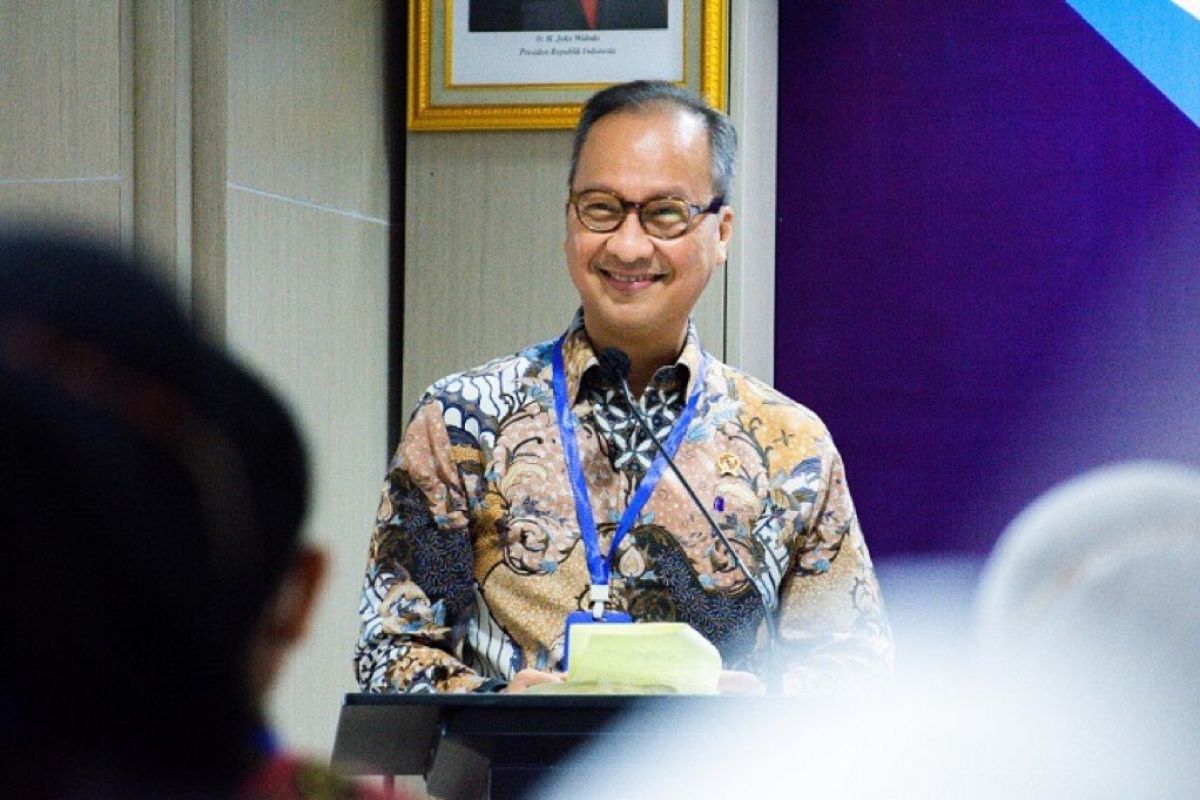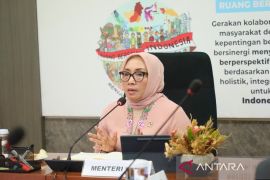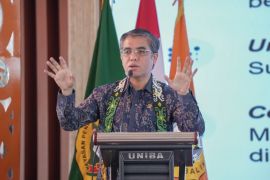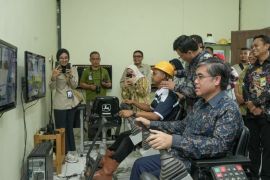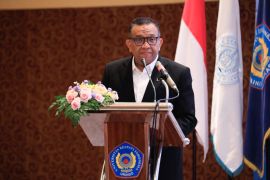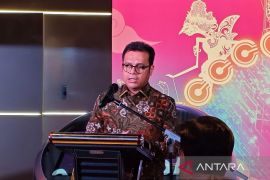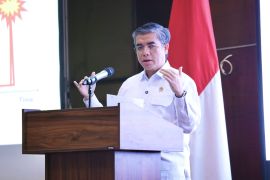"These efforts are being carried out so that Indonesia becomes a part of the digital technology producer and Indonesia is able to obtain maximum benefits in its development," the minister informed in a statement received in Jakarta on Tuesday.
Some of the steps taken include expanding and enhancing the capabilities of the domestic content software industry, accelerating access expansion, and improving digital infrastructure.
They further include preparing digital transformation road maps in strategic sectors, accelerating the integration of national data centers, preparing digital human resource (HR) needs, and preparing regulations for financing schemes and funding.
"Under the direction of President Joko Widodo, the government has prepared a digital economy development framework for 2021–2030, which will serve as a guide for realizing the vision of becoming a digital economy power and spurring inclusive, connected, and sustainable economic growth," Kartasasmita said.
The framework of digital economy development includes four pillars for sustainable growth. The first pillar is the development of human resources, especially digital talents who have science and technology skills. The second is the establishment of strong digital and physical infrastructure to increase economic flows and create job opportunities in both sectors.
The third pillar is simplifying various bureaucracies through policies, rules, and standards that support and reduce barriers to innovation. The fourth pillar is carrying out research and digital innovation to generate added value for the industry and reduce dependence on natural resources.
According to the minister, the digital economy framework is very important because of the tremendous potential of the digital economy in Indonesia. Based on research from Google, Temasek, and Bain & Company, the value of Indonesia's digital economy will reach US$70 billion in 2021, or the highest in Southeast Asia.
The potential of the digital economy is still growing and its value is expected to jump to US$146 billion by 2025.
"I believe this figure will be very easy to achieve because currently, the use of the Internet is (becoming) increasingly massive," he said.
Based on data from We Are Social, this is evident from the surge in the number of Internet users in the country. In 2018, the number of Internet users in the country stood at 132.2 million. Their number soared to 202.6 million in 2021, and this year, it is projected to reach 210 million.
"This condition shows how big the potential of the digital economy is to immediately optimize it in the economy," Kartasasmita said.
The Ministry of Industry is, therefore, taking strategic steps to support digitalization, including by accelerating business transformation in the manufacturing sector through the Making Indonesia 4.0 road map.
Then, in keeping with the commitment to expand and improve the capabilities of the domestic content software industry, the Ministry of Industry has organized a technical guidance program to train the younger generation so that they can contribute in real terms to the growth of the national digital economy.
Through this program, the Ministry of Industry expects local production of application software, games, and animations, which can compete with global products.
So far, the “Technical Guidance on the Development of the Content Software Industry” has been provided to 100 students from four Islamic boarding schools in Indonesia.
"Through this program, we provide understanding and motivation to the younger generation about the importance of digitalization in an effort to accelerate national economic recovery," director general of metal, transportation equipment, and electronics (ILMATE) industry, Taufiek Bawazier, said.
The Ministry of Industry has also devised industrial development activities for Artificial Intelligence (AI), Big Data, and other technologies needed in the digital economy.
These efforts must be supported by quality cybersecurity. For this reason, the ministry has built technology and innovation center development areas (Digital Technopark) at five locations, namely Batam, Bandung, Semarang, Bali, and Makassar.
"In addition, the government is also accelerating physical and digital infrastructure improvements, such as the development of 5G networks and the plan to procure low orbital satellites to provide Internet services to remote areas of Indonesia," Bawazier said.
Related news: Indonesia to be largest digital economy in SE Asia by 2030: Minister
Related news: Indonesia targets 30 million MSMEs entering digital ecosystem by 2024
Translator: Sella P, Azis Kurmala
Editor: Rahmad Nasution
Copyright © ANTARA 2022
